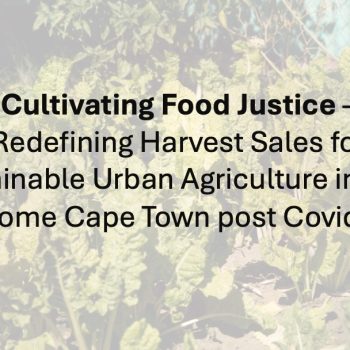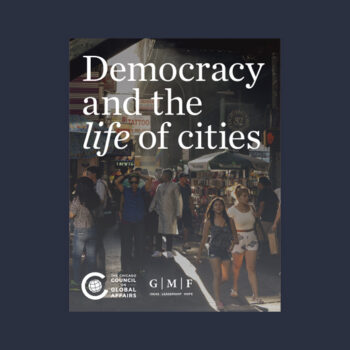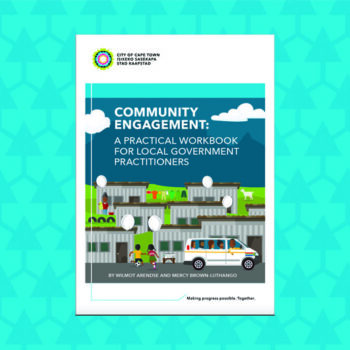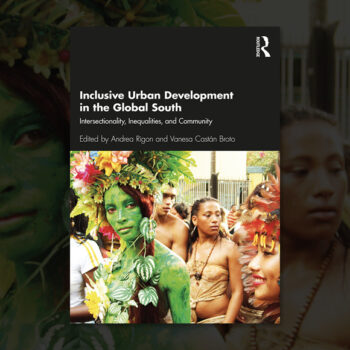
Mercy Brown-Luthango
Researcher
mercy.brown-luthango@uct.ac.zaProjects
- Phillipi
- Mistra Urban Futures: CityLab Programme
- MPhil in Urban Infrastructure: Design and Management
- Phillipi CityLab
- Urban Violence, Safety and Governance
- Mistra Urban Futures
- Public Design Sketchbook & Social Justice Coalition
- Integration Syndicate
- MA in Sustainable Urban Practice
- Pan African Research College on Sustainable Cities
Bio
Mercy Brown-Luthango holds a DPhil in the Sociology of Work. Her main research focus is on the creation of sustainable human settlements with particular interest in the management of urban land and the operation of the urban land market. Her research has contributed towards a better understanding of the functioning of urban land markets and how inappropriate land management practices impact on poor people’s access to affordable and well-located land and housing in South Africa. This research looks at the principles, instruments and potential of land value capture to address spatial inequalities and promote more equitable and sustainable use of finite land resources.
Within the broad ambit of sustainable human settlements she has also done work on the effectiveness of upgrading of informal settlements as a tool to improve safety and reduce crime and violence in informal settlements as well as how urban communities engage the State and other actors in the provision of infrastructure and services. A thread that runs through her research and teaching is university-community engagement as co-production of knowledge.
Recent research projects include a study of the Voortrekker Road Corridor Integration Zone (VRCIZ) and the potential for socio-spatial transformation in the Western Area (Maitland, Kensington and Factreton). Another recent project called Youth, Identity and the City made use of photography and other participatory research methods to engage a group of 13 young people from marginalised area in a process of exploration and reflection on issues of identity, inclusion and mobility (spatially, emotionally and socially) in the city.
Publications
- Brown, M (2002) Intellectual Diaspora Networks: Their Viability as a Response to Highly Skilled Emigration, Autrepart, 22 (2)
- Brown M and Meyer J (2002) Le Développement Des Compétences Et Du Marché Du Travail Dans La Nouvelle Afrique Du Sud. Formation Emploi, No. 80,Octobre – Décembre 2002. Centre et de Recherches Sur Les Qualifications. Paris
- Brown-Luthango, M (2006) World Habitat Seminar Calls for Improved Women’s Access to Housing Rights”. ESR Review, Economic and Social Rights in South Africa. Vol. 7, No.4, December 2006.
- Brown-Luthango, M (2010) “Access to Land for the Urban Poor – Policy Proposals for South African Cities”, Urban Forum, Vol. 21, pg. 123-138
- Brown-Luthango, M (2011) “Capturing Land Value Increment to Finance Infrastructure Investment – Possibilities for South Africa”, Urban Forum, Vol. 22, pg. 37-52
- Brown-Luthango, M et al (2013) Towards Effective City Planning – The Case of Cape Town in identifying Potential Housing Land, Urban Forum, Vol. 24, Issue 2
- Brown-Luthango, M (2013) “Community-University Engagement: The Philippi CityLab in Cape Town and the challenge of collaboration across boundaries”, Higher Education, Vol. 65, Number 3
- Anderson, PML; Brown-Luthango, M; Cartwright, A, Farouk, I and Smit, W (2013) Brokering communities of knowledge and practice: reflections on the African Centre for Cities’ CityLab Programme. Cities 31, pg. 1- 10
- Brown-Luthango, M (2015) “Collective (in) Efficacy, Substance Abuse and Violence in Freedom Park, Cape Town, Journal of Housing and the Built Environment, Vol. 31, Issue 1, pg.123-140
- Brown-Luthango, M et al (2016) “Informal Settlement Upgrading and Safety: Experiences from Cape Town”, Journal of Housing and the Built Environment, DOI 10.1007/s10901-016-9523-4
- Brown-Luthango, M (2018) “Stuck in Freedom Park” – Youth transitions
and social inclusion amongst coloured youth in Tafelsig, Cape Town”, Commonwealth, Youth and Development, Volume 16 (1). pg.1-16, UNISA Press - Brown-Luthango, M (2019) “Sticking to themselves: neighbourliness and safety in two self-help projects in Cape Town, South Africa”, Transformation: Critical Perspectives on Southern Africa, Issue 99, pg. 37-60
- Brown-Luthango, M (2020) “Neo-liberalism (s), socio-spatial transformation and violence reduction in Cape Town – Lessons from Medellin”, Cogent Social Sciences, Volume 6 (1)
Edited Volume
- Brown-Luthango M (2015) “State/Society Synergy in Philippi, Cape Town”. African Centre for Cities, University of Cape Town: Cape Town
Chapters in Books - Brown, M (2000) Chapter 6 in Brain Drain and Capacity Building in Africa, JM Tapsoba, Sabiou Kassoum, V. Pascal V. Houenou, Bankole Orvi, Meera Sethi and Joseph Ngu (eds), UNECA/IDRC/IOM
- Brown M, Kaplan D and Meyer J (2002) The Brain Drain: An Outline of Skilled Emigration from South Africa, Chapter 4 in “Destinations Unknown: Perspectives on the Brain Drain in Southern Africa”, McDonald A and Crush J (Eds). Africa Institute of South Africa and Southern African Migration Project: South Africa
- Brown M (2003) The South African Network of Skills Abroad: The South African Experience of Scientific Diaspora Networks, Chapter 8 in Scientific Diasporas – How Can Developing Countries Benefit From Their Expatriate Scientists and Engineers? Rémi Barré, Valeria Hernández, Jean-Baptiste Meyer and Dominique Vinck. IRD Éditions Institute De Recherche Pour Le Développement collection Expertise Collégiale. Paris, 2003.
- Brown-Luthango, M (2015) “Commenting on Local Development: Insights from Philippi” in State/Society Synergy in Philippi, Cape Town, Brown-Luthango, M (ed), African Centre for Cities: Cape Town
- Brown-Luthango, M and Reyes, E (2017) “ Urban Upgrading to Reduce Violence in Informal Settlements – The case of Violence Prevention through Urban Upgrading in Monwabisi Park, Cape Town” in Companion to Planning in the Global South, Watson, V; Bhan, G and Srinivas, S (eds), Routledge
- Brown-Luthango, M (2021) “An excluded and unrecognized majority – everyday struggles of backyarders in the Western Area of the Voortrekker Road Corridor in Cape Town, South Africa, Chapter 5 in “Inclusive Urban Development in the Global South: Intersectionality, Inequalities, and community”, Rigon A and Castan Broto V (eds), Routledge (forthcoming)




